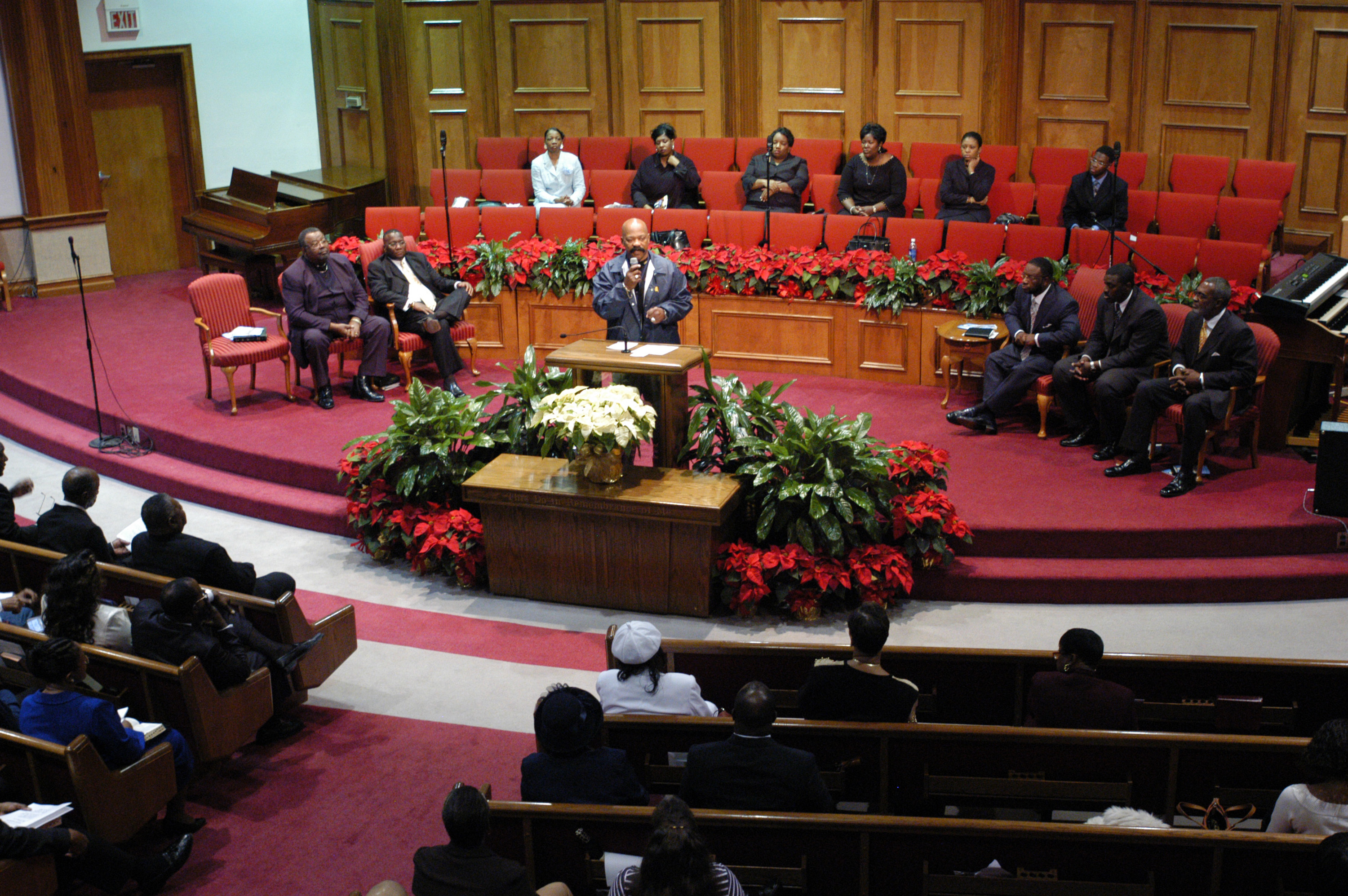|
Fred Phelps
Fred Waldron Phelps Sr. (November 13, 1929 – March 19, 2014) was an American minister who served as the pastor of the Westboro Baptist Church, worked as a civil rights attorney, and ran for statewide election in Kansas. He gained national attention for his homophobic views and protests near the funerals of gay people, military veterans, and disaster victims who he believed were killed as a result of God punishing the U.S. for having "bankrupt values" and tolerating homosexuality. In 1955, Phelps founded the Westboro Baptist Church, a Topeka, Kansas-based independent Primitive Baptist congregation. It has been described by the Southern Poverty Law Center as "arguably the most obnoxious and rabid hate group in America". [...More Info...] [...Related Items...] OR: [Wikipedia] [Google] [Baidu] |
Primitive Baptist
Primitive Baptists – also known as Hard Shell Baptists, Foot Washing Baptists or Old School Baptists – are conservative Baptists adhering to a degree of Calvinist beliefs who coalesced out of the controversy among Baptists in the early 19th century over the appropriateness of mission boards, tract societies, and temperance societies. The adjective "primitive" in the name is used in the sense of "original". History The controversy over whether churches or their members should participate in mission boards, Bible tract societies, and temperance societies led the Primitive Baptists to separate from other general Baptist groups that supported such organizations, and to make declarations of opposition to such organizations in articles like the ''Kehukee Association Declaration of 1827''. The Kehukee Primitive Baptist Church released a proclamation that they rejected formal service institutions outside of the church. The declaration proposed that "Upon examination, it was found ... [...More Info...] [...Related Items...] OR: [Wikipedia] [Google] [Baidu] |
Hate Speech
Hate speech is defined by the ''Cambridge Dictionary'' as "public speech that expresses hate or encourages violence towards a person or group based on something such as race, religion, sex, or sexual orientation". Hate speech is "usually thought to include communications of animosity or disparagement of an individual or a group on account of a group characteristic such as race, colour, national origin, sex, disability, religion, or sexual orientation". Legal definitions of hate speech vary from country to country. There has been much debate over freedom of speech, hate speech, and hate speech legislation. The laws of some countries describe hate speech as speech, gestures, conduct, writing, or displays that incite violence or prejudicial actions against a group or individuals on the basis of their membership in the group, or that disparage or intimidate a group or individuals on the basis of their membership in the group. The law may identify a group based on certain character ... [...More Info...] [...Related Items...] OR: [Wikipedia] [Google] [Baidu] |
Homophobia
Homophobia encompasses a range of negative attitude (psychology), attitudes and feelings toward homosexuality or people who are identified or perceived as being lesbian, gay or bisexual. It has been defined as contempt, prejudice, aversion, hatred or antipathy, may be based on irrational fear and may also be related to religious beliefs. Negative attitudes towards transgender and transsexual people are known as transphobia.* *"European Parliament resolution on homophobia in Europe" Texts adopted Wednesday, 18 January 2006 – Strasbourg Final edition- "Homophobia in Europe" at "A" point * * Homophobia is observable in critical and hostile behavior such as discrimination and Violence against LGBT people, violence on the basis of sexual orientations that are non-heterosexual. Recognized types of homophobia include ''institutionalized'' homophobia, e.g. religious homophobia and state-sponsored homophobia, and ''internalized'' homophobia, experienced by people who have same-s ... [...More Info...] [...Related Items...] OR: [Wikipedia] [Google] [Baidu] |
LGBT Social Movements
Lesbian, gay, bisexual, and transgender (LGBT) movements are social movements that advocate for LGBT people in society. Some focus on equal rights, such as the ongoing movement for same-sex marriage, while others focus on liberation, as in the gay liberation movement of the 1960s and 1970s. Earlier movements focused on self-help and self-acceptance, such as the homophile movement of the 1950s. Although there is not a primary or an overarching central organization that represents all LGBT people and their interests, numerous LGBT rights organizations are active worldwide. The earliest organizations to support LGBT rights were formed in the early 20th century. A commonly stated goal among these movements is social equality for LGBT people, but there is still denial of full LGBT rights. Some have also focused on building LGBT communities or worked towards liberation for the broader society from biphobia, homophobia, and transphobia. There is a struggle for LGBT rights today. LGBT ... [...More Info...] [...Related Items...] OR: [Wikipedia] [Google] [Baidu] |
First Amendment To The United States Constitution
The First Amendment (Amendment I) to the United States Constitution prevents the government from making laws that regulate an establishment of religion, or that prohibit the free exercise of religion, or abridge the freedom of speech, the freedom of the press, the freedom of assembly, or the right to petition the government for redress of grievances. It was adopted on December 15, 1791, as one of the ten amendments that constitute the Bill of Rights. The Bill of Rights was proposed to assuage Anti-Federalist opposition to Constitutional ratification. Initially, the First Amendment applied only to laws enacted by the Congress, and many of its provisions were interpreted more narrowly than they are today. Beginning with ''Gitlow v. New York'' (1925), the Supreme Court applied the First Amendment to states—a process known as incorporation—through the Due Process Clause of the Fourteenth Amendment. In '' Everson v. Board of Education'' (1947), the Court drew on Thomas ... [...More Info...] [...Related Items...] OR: [Wikipedia] [Google] [Baidu] |
The Topeka Capital-Journal
''The Topeka Capital-Journal'' is a daily newspaper in Topeka, Kansas, owned by Gannett. History The paper was formed following numerous name changes and mergers, including the merger of ''The Topeka Daily Capital'' and ''The Topeka State Journal''. Timeline * 1858: The ''Kansas State Record'' starts publishing. * 1873: The ''Topeka Blade'' is founded by J. Clarke Swayze. * 1879: George W. Reed buys the ''Blade'' and changes its name to ''The Kansas State Journal''. * 1879: ''The Topeka Daily Capital'' is founded by Major J.K. Hudson as an evening paper but changes to morning in 1881. * 1885: Frank P. MacLennan buys the ''Journal'' and renames it ''The Topeka State Journal''. * 1888: The ''Capital'' absorbs the ''Commonwealth'', owned by Floyd Perry Baker and his sons, who had earlier bought the ''Kansas State Record''. * 1899: Frederick Oliver Popenoe buys a 51 percent controlling interest in the ''Capital''. * 1900: Charles M. Sheldon, saying " Newspapers should be opera ... [...More Info...] [...Related Items...] OR: [Wikipedia] [Google] [Baidu] |
The Washington Post
''The Washington Post'' (also known as the ''Post'' and, informally, ''WaPo'') is an American daily newspaper published in Washington, D.C. It is the most widely circulated newspaper within the Washington metropolitan area and has a large national audience. Daily broadsheet editions are printed for D.C., Maryland, and Virginia. The ''Post'' was founded in 1877. In its early years, it went through several owners and struggled both financially and editorially. Financier Eugene Meyer purchased it out of bankruptcy in 1933 and revived its health and reputation, work continued by his successors Katharine and Phil Graham (Meyer's daughter and son-in-law), who bought out several rival publications. The ''Post'' 1971 printing of the Pentagon Papers helped spur opposition to the Vietnam War. Subsequently, in the best-known episode in the newspaper's history, reporters Bob Woodward and Carl Bernstein led the American press's investigation into what became known as the Watergate scandal ... [...More Info...] [...Related Items...] OR: [Wikipedia] [Google] [Baidu] |
Supreme Court Of The United States
The Supreme Court of the United States (SCOTUS) is the highest court in the federal judiciary of the United States. It has ultimate appellate jurisdiction over all U.S. federal court cases, and over state court cases that involve a point of federal law. It also has original jurisdiction over a narrow range of cases, specifically "all Cases affecting Ambassadors, other public Ministers and Consuls, and those in which a State shall be Party." The court holds the power of judicial review, the ability to invalidate a statute for violating a provision of the Constitution. It is also able to strike down presidential directives for violating either the Constitution or statutory law. However, it may act only within the context of a case in an area of law over which it has jurisdiction. The court may decide cases having political overtones, but has ruled that it does not have power to decide non-justiciable political questions. Established by Article Three of the United States ... [...More Info...] [...Related Items...] OR: [Wikipedia] [Google] [Baidu] |
Christians
Christians () are people who follow or adhere to Christianity, a monotheistic Abrahamic religion based on the life and teachings of Jesus Christ. The words ''Christ'' and ''Christian'' derive from the Koine Greek title ''Christós'' (Χριστός), a translation of the Biblical Hebrew term ''mashiach'' (מָשִׁיחַ) (usually rendered as ''messiah'' in English). While there are diverse interpretations of Christianity which sometimes conflict, they are united in believing that Jesus has a unique significance. The term ''Christian'' used as an adjective is descriptive of anything associated with Christianity or Christian churches, or in a proverbial sense "all that is noble, and good, and Christ-like." It does not have a meaning of 'of Christ' or 'related or pertaining to Christ'. According to a 2011 Pew Research Center survey, there were 2.2 billion Christians around the world in 2010, up from about 600 million in 1910. Today, about 37% of all Christians live in the Am ... [...More Info...] [...Related Items...] OR: [Wikipedia] [Google] [Baidu] |
The Laramie Project
''The Laramie Project'' is a 2000 play by Moisés Kaufman and members of the Tectonic Theater Project (specifically, Leigh Fondakowski, writer-director; Stephen Belber, Greg Pierotti, Barbara Pitts, Stephen Wangh, Amanda Gronich, Sara Lambert, John McAdams, Maude Mitchell, Andy Paris, and Kelli Simpkins) about the reaction to the 1998 murder of gay University of Wyoming student Matthew Shepard in Laramie, Wyoming. The murder was denounced as a hate crime and brought attention to the lack of hate crime laws in various states, including Wyoming. An example of verbatim theatre, the play draws on hundreds of interviews conducted by the theatre company with inhabitants of the town, company members' own journal entries, and published news reports. It is divided into three acts, and eight actors portray more than sixty characters in a series of short scenes. Performances ''The Laramie Project'' premiered at The Ricketson Theatre by the Denver Center Theatre Company (Denver) (part of ... [...More Info...] [...Related Items...] OR: [Wikipedia] [Google] [Baidu] |
Gay Pride
LGBT pride (also known as gay pride or simply pride) is the promotion of the self-affirmation, dignity, equality, and increased visibility of lesbian, gay, bisexual, and transgender (LGBT) people as a social group. Pride, as opposed to shame and social stigma, is the predominant outlook that bolsters most LGBT rights movements. Pride has lent its name to LGBT-themed organizations, institutes, foundations, book titles, periodicals, a cable TV station, and the Pride Library. Ranging from solemn to carnivalesque, pride events are typically held during LGBT Pride Month or some other period that commemorates a turning point in a country's LGBT history, for example Moscow Pride in May for the anniversary of Russia's 1993 decriminalization of homosexuality. Some pride events include LGBT pride parades and marches, rallies, commemorations, community days, dance parties, and festivals. Common symbols of pride include the rainbow flag and other pride flags, the lowercase Greek le ... [...More Info...] [...Related Items...] OR: [Wikipedia] [Google] [Baidu] |





.jpg)




.jpg)